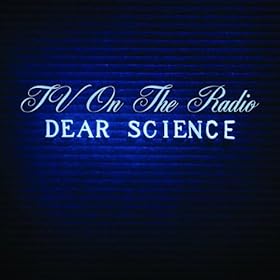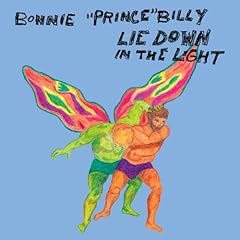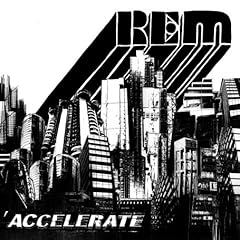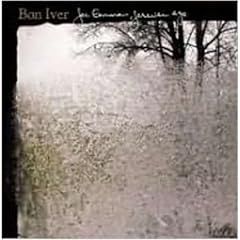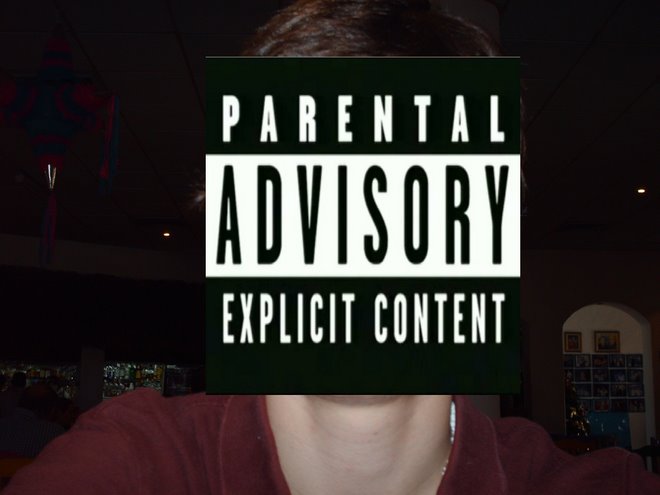
Radiohead have soared to being frequently recognized as the best band on the planet. In fact, they've been there ever since "Kid A" got the recognition it deserved as one of the best and boldest albums released in the past ten years. Unfortunately, thanks to the three-album string of perfection wherein they mastered stadium rock ("The Bends"), alternative rock ("OK Computer"), and electronica ("Kid A"), Radiohead have become superhuman. This is why hype built up the release of "Amnesiac" as Radiohead's return to guitar... which is the opposite of what it turned out to be, and why it was seen as such a disappointment to many critics. Even "Kid A" itself, now seen as arguably the decade's defining album, was not met with universal acclaim upon its release. Radiohead have always challenged their listeners, and it has always paid off.
Now it seems the band is trying to destroy its superhuman image, or at least contain it. The band remained mum on any album details, released no singles/videos, and made note that an album would be coming out via their website less than two weeks before it arrived. Now it has arrived, and
1.2 million fans have already "purchased" it by downloading the album from the band's website and paying (or not) an optional donation. This technique serves multiple purposes. It prevents the band from creating a formidable period of hype, where mental prejudices are formed by listeners before they've even heard the album (prejudices like these are why everyone seemingly loved the Strokes' first album, and everyone seemingly was disappointed by their second). It also prevents leaking of the album, so all 1.2 million downloaders heard the album at (roughly) the same time, as their guitarist Jonny Greenwood pointed out in an
interview with Rolling Stone. What it amounts to is this: for the first time since "The Bends" in 1995, we can listen to Radiohead without grandiose expectations in the way.
And what of the music? After all, the point of this review is not a history lecture, but a critique of the music on "In Rainbows". To put it simply, "In Rainbows" is the best Radiohead album since "Kid A". It addresses the major issues which made "Amnesiac" average and prevented "Hail to the Thief" from attaining greatness. "Amnesiac" was plagued by over-experimentation and songs that seemingly served no purpose on the album ("Hunting Bears" anyone?). "Hail to the Thief" meanwhile, was poorly sequenced to the point that when songs did connect, it seemed more by chance than choice. "Rainbows" experiments with new sounds in the "Idioteque" vein while managing to tie them together with songs that were originally created during the "OK Computer" sessions, all without sacrificing continuity and flow.
The album kicks off with "15 Step". Propelled by a hard drum line and a hint of guitar, Thom Yorke floats lyrics like "did the cat get your tongue?" over the top of the driving music. Indeed I was left speechless, especially by the brief falsetto bridge. It leads well into "Bodysnatchers", which is similar to an inverted "15 Step" in that it's led by a hard guitar line and a hint of drum. Yorke barks his lyrics this time out, and they are hardly discernable at times, but the snarl in his voice is effective at conveying the dreadful mood of the song. It's the best guitar-based Radiohead track since "Paranoid Android". That should be all you need to know about it. The band is able to then transition in the beautifully-orchestrated "Nude", a song akin to "How to Disappear Completely" from "Kid A". Yorke's echoing falsetto carries the tune as it breezes over keys, violin, and drum. "Weird Fishes / Arpeggi" follows, and is one of the album's more interesting tracks. Led by keyboards, and featuring the first horns on the album. It's another great track, featuring wonderful use of build-up. The building is done with such subtlety that you don't notice it happening until it's already all the way up. The song closes with an amazing breakdown and we move on to "All I Need".
The love song, long seen as abandoned by the band, makes a return here. "You are all I need" softly coos Yorke, as the band becomes bigger and more powerful than on any other part of this album. As Yorke begins to wail and the sound crashes through wall after wall, you realize two things: 1) This is a really, really great album and 2) It just hit its climax. The simple, short violin-based "Faust Arp" follows. It's a good way to settle down after the conclusion of "All I Need", but little more. With "Reckoner", the band returns to form. Yorke's falsetto is magnificent and the track is good, though not a stunner like some earlier on the album.
"House of Cards" is a very enjoyable song, featuring the opening line "I don't want to be your friend; I just want to be your lover." Another love song? Another great one, complete with orchestra, celestial guitar, and excellent atmospherics. It closes with a whirl of sound and arrives at "Jigsaw Falling into Place", an immensely enjoyable song. Yorke speaks the vocals, but the swirling and hypnotizing background harmonies more than allow for that. With great use of horns and guitar, Radiohead crafts the last thing I thought this album would produce: a perfect pop song, complete with a breakdown catch-phrase: "and the beat goes 'round!" Album finale "Videotape" begins with just a piano accompanying Yorke as he sings of "when [he's] at the Pearly Gates..." as he continues to craft an introspective about religion, love, and time. It's the ideal close.
Having waited two days and two dozen listens, I can finally write that this is the Radiohead album I'd been hoping for. It has only one lesser track, and even that only lasts two minutes. It manages to do what every Radiohead fan had wished for, but never thought they would see: they combined elements of all three of their previous masterpieces (albums #2-4) and arrived with their fourth. Ladies and gentlemen, the best band in the world is back again.
Rating: 9.3


